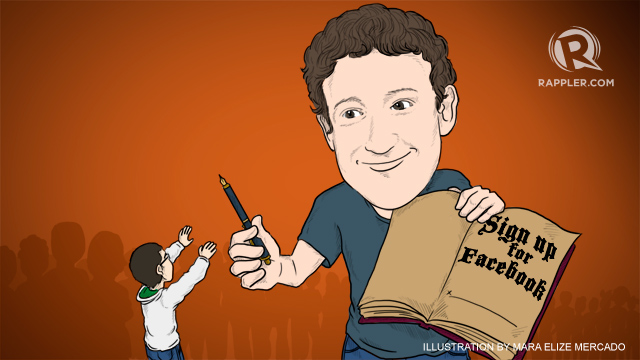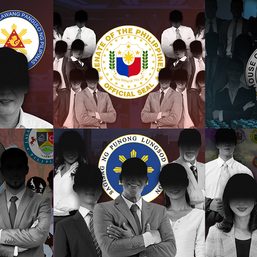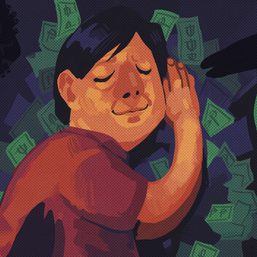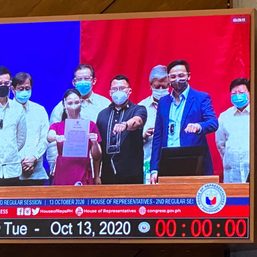SUMMARY
This is AI generated summarization, which may have errors. For context, always refer to the full article.
 I will not argue with the fact that Facebook is revolutionary. It’s helped topple dictators, restore democracies, and has connected billions of people around the world, and that is a beautiful thing. But there is also something very ugly – and even frightening – about the power Facebook holds over people and businesses around the world. (READ: Social media can be annoying, and that’s why it’s good for us)
I will not argue with the fact that Facebook is revolutionary. It’s helped topple dictators, restore democracies, and has connected billions of people around the world, and that is a beautiful thing. But there is also something very ugly – and even frightening – about the power Facebook holds over people and businesses around the world. (READ: Social media can be annoying, and that’s why it’s good for us)
I am a social media producer at Rappler. I spend a lot of my day working on Facebook. So “changes” to newsfeed algorithms, like the latest one Facebook rolled out, will naturally get those who work in social media scrambling to figure out what that actually means.
Stressed out is a big understatement. The changes reportedly would promote high quality content over spam and click bait. But the change, which rolled out earlier this year, didn’t explain in great detail what differentiates spam and a legitimate post.

Well for one, Facebook explained that memes and posts that ask people to like, share and repost – or those damned posts that tell people they’re going to hell if they don’t share – were probably going to be filtered out.
And rarely does Facebook ever care to explain itself in detail; it’s a private company after all. This had me thinking about the massive power Facebook actually has over its billion users worldwide. Because the issue is not just about algorithms, it is also about the sheer volume of information a single company has under its control.
When we choose to place information, photos and thoughts on our page, it becomes fair game for the public to use (and abuse) in whatever way they want.
Most people know by now that we give Facebook more information than we should but we do it anyway. (READ: 3 ways Facebook is ruining our lives)
We spend more time liking, sharing, browsing and chatting than we should, but we do it anyway. The positive benefits and the convenience of Facebook outweigh its pitfalls. The annoyances, the wasted time and the trolls are only small prices to pay to be part of something that is now such a necessary part of our lives. (READ: The Facebook effect: The age of living anxiously)
Scientists have found that likes, shares, and comments on our posts release a hormone called dopamine – the same chemical our brains release when we have sex, eat chocolate, or do anything pleasurable. Facebook feeds the apetite for dopamine.
Planning a party? Send a Facebook invite. Forgot to pay your phone bill or ran out of load? Go on Facebook messenger! There are so many conveniences built into this one social platform that the world just can’t seem to do without it anymore.
Bill of rights
But when companies act irresponsibly, consumers would normally demand accountability. Maybe it’s time for a social media users bill of rights? If we are going to put so much of our lives online, and allow big companies to sell our information, shouldn’t we have some say in what they’re doing with it? Several petitions have actually been circulating, but none have gained enough public support to be taken seriously by the guys at Facebook’s Menlo Park, USA, headquarters.
My guess is that for most, it’s a battle too big to fight alone and a cause not worthy enough to recruit an army for. But if you ask Zuckerberg, people don’t care as much about their personal info as they used to.
In 2010, he said in San Francisco, “People have really gotten comfortable not only sharing more information and different kinds, but more openly and with more people,” he said. “That social norm is just something that has evolved over time.”
I certainly am not comfortable with it.
Zuckerberg and the surveys act as if people are given much of a choice. More accurately, we’ve subconsciously signed ourselves away in an unholy social contract with Facebook. And if it is indeed a shifting cultural norm, it’s not because people are “comfortable” sharing their personal information. We share it because it is what we must forfeit in order to be part of the network. And not being “in” can make life a lot more difficult for people. That – is why we are “OK” with letting go of some privacy.
In 2014, he made a bold declaration against the US’ National Security Administration’s (NSA) surveillance and data-gathering programs.
“The Internet is our shared space. It helps us connect. It spreads opportunity. It gives us a voice. It makes us stronger and safer together,” Zuckerberg wrote in a Facebook note.
“This is why I’ve been so confused and frustrated by the repeated reports of the behavior of the US government,” Zuckerberg emphasized in the note. “When our engineers work tirelessly to improve security, we imagine we’re protecting you against criminals, not our own government.”
Facebook does release an annual accountability report. Their 2013 report said in the first 6 months of 2013 that they complied with 80% of the US government’s 10,000 requests for information on 20,000 accounts.
What privacy?
Still, Zuckerberg does not practice the gospel he preaches on Internet freedom and responsibility. Facebook has violated basic principles of user privacy on multiple occasions. It’s hypocrisy.
What makes what Faceboook does with private information any worse than what the US government does with it? And why not protest handing over information if he’s so against it? That would be the bolder statement.
In case we forgot: 500 million Facebook users “may have had their information leaked to advertisers in 2011,” reported Business Insider. Addresses and phone numbers were once offered to third-party app developers that same year. And let’s not forget the controversy with Facebook photos and names being used in advertisements without permission in 2012. But after being brought to the public’s attention, each issue was either settled in court or addressed by Facebook.
We know this yet we continue to use it. But why?
Facebook is like the illegal drug trade. The demand for Facebook skyrocketed because Zuckerberg – like the drug lords – realized that he could make a ton of money by getting millions of people addicted to his product. The man who was once the world’s youngest self-made billionaire made his fortune by turning people into dopamine junkies.
So while listening to sermons about the Internet and social media may inspire us and give us warm and fuzzy feelings inside, we should never forget about what Facebook really is: a business. It’s a business that makes tons of money by capturing and selling our data, by using information we give in exchange for a service that feeds our addiction to social networking. In 2013, Facebook marked US$7.87 billion in revenue and earned $1.5 billion in net profits.
Maybe in the near future we’ll be walking into Facebook addict support groups: “Hi. My name is Ryan Macasero, I’m 25, and I’ve been a dopamine junkie for 6 years.”
But in all seriousness, even though it makes my life crazy sometimes, social media also makes my life convenient. I hate what it does to people, yet I cannot discount the good it’s done for the world. And as frustrated and fed up as I am, the reality is that it’s just too hard to let go. Thanks, Zuck. – Rappler.com
Ryan Macasero is a social media producer and the #BalikBayan editor at Rappler. He was a freelance journalist in the San Francisco Bay Area before moving to Manila in 2013. Follow him on Twitter: @ryanmacasero
Add a comment
How does this make you feel?




![[PODCAST] Beyond the Stories: Ang milyon-milyong kontrata ng F2 Logistics mula sa Comelec](https://www.rappler.com/tachyon/2021/11/newsbreak-beyond-the-stories-square-with-topic-comelec.jpg?resize=257%2C257&crop_strategy=attention)





![[EDITORIAL] Ang low-intensity warfare ni Marcos kung saan attack dog na ang First Lady](https://www.rappler.com/tachyon/2024/04/animated-liza-marcos-sara-duterte-feud-carousel.jpg?resize=257%2C257&crop=294px%2C0px%2C720px%2C720px)
![[Free to disagree] How to be a cult leader or a demagogue president](https://www.rappler.com/tachyon/2024/04/TL-free-to-disagree.jpg?resize=257%2C257&crop_strategy=attention)
![[OPINION] Can Marcos survive a voters’ revolt in 2025?](https://www.rappler.com/tachyon/2024/04/tl-voters-revolt-04042024.jpg?resize=257%2C257&crop=251px%2C0px%2C720px%2C720px)
![[Edgewise] Quo vadis, Quiboloy?](https://www.rappler.com/tachyon/2024/03/quo-vadis-quiboloy-march-21-2024.jpg?resize=257%2C257&crop_strategy=attention)
There are no comments yet. Add your comment to start the conversation.